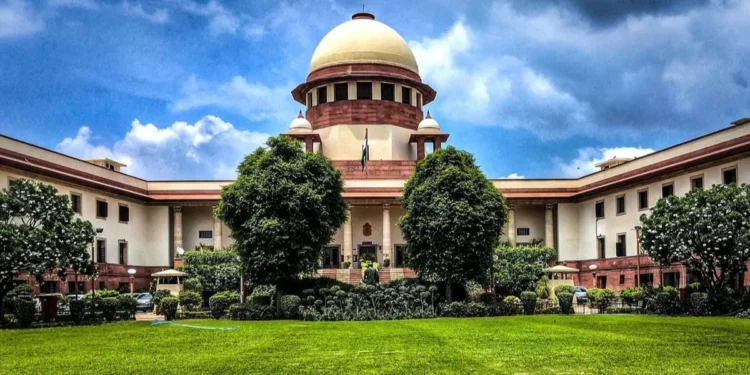Lagatar24 Desk
New Delhi: In a landmark judgment, the Supreme Court on Thursday ruled that the provision of anticipatory bail is applicable under the Goods and Services Tax (GST) Act and the Customs Act, allowing individuals to seek pre-arrest bail even if an FIR has not been registered.
A bench comprising Chief Justice Sanjiv Khanna and Justices MM Sundresh and Bela M Trivedi delivered the verdict on a batch of pleas that challenged the penal provisions of the Customs Act and GST Act, arguing that they were incompatible with the Code of Criminal Procedure (CrPC) and the Indian Constitution.
Court Recognizes Right To Anticipatory Bail
While pronouncing the verdict, Chief Justice Sanjiv Khanna stated that provisions of the CrPC and the Bharatiya Nagarik Suraksha Sanhita (BNSS) would be applicable in cases related to GST and Customs law violations, ensuring that individuals under scrutiny have the right to seek anticipatory bail before any formal FIR is registered.
The ruling clarifies that people facing potential arrest under these economic laws are entitled to legal protection and can approach the courts for relief before formal criminal proceedings commence.
Awaiting Detailed Judgment
The detailed judgment is yet to be released, but this decision sets a significant precedent in tax and customs-related cases, where law enforcement agencies have often exercised discretionary powers to initiate arrests.
The ruling comes in response to a 2018 petition filed by Radhika Agarwal, which challenged the existing legal framework concerning anticipatory bail provisions in tax-related offenses.
Legal and Business Implications
This Supreme Court verdict is expected to have major implications for businesses and individuals dealing with GST and Customs-related disputes. Many legal experts believe that this decision will provide much-needed legal relief in cases where authorities have been accused of misusing arrest powers in economic offenses.
The ruling also aligns with the broader principle of protection of individual liberty, ensuring that taxpayers and businesses are not subjected to unnecessary harassment or coercion in taxation-related matters.









